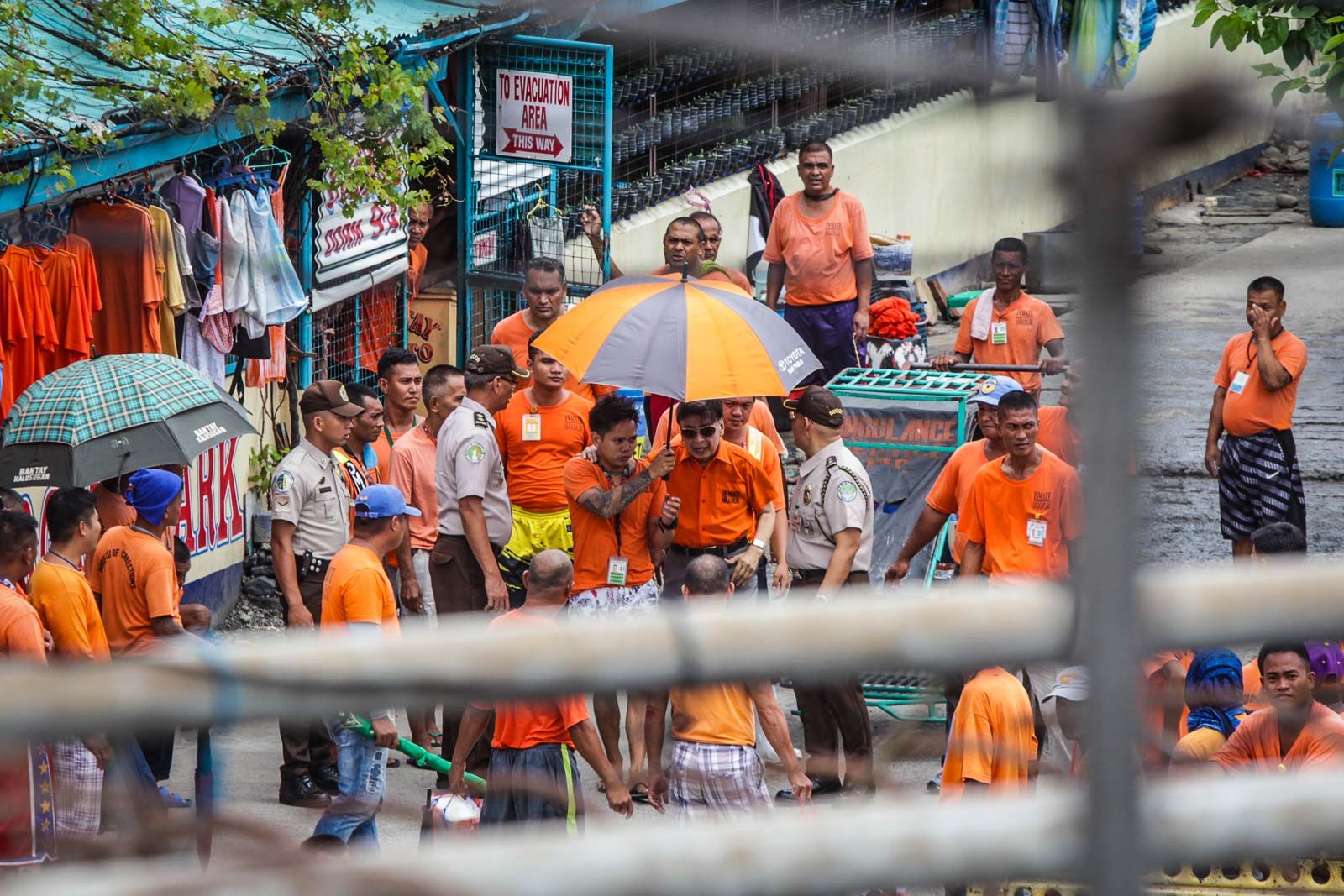SUMMARY
This is AI generated summarization, which may have errors. For context, always refer to the full article.

MANILA, Philippines (UPDATED) – Malacañang said on Friday, August 30, that it wanted to send back to jail the 1,914 heinous crime convicts who were released on the basis of the Good Conduct Time Allowance (GCTA) law.
Several provisions of the Revised Penal Code as well as a constitutional guarantee against ex post facto laws contradict Malacañang’s wishes. Ex post facto laws are simply laws that will penalize a crime that was committed at a time when it was not yet illegal.
As the government conducts a review of the GCTA law with the goal of excluding heinous crimes from the coverage, the Bureau of Corrections (BuCor) revealed that it has already released 1,914 heinous crimes convicts because it applied at the time an interpretation that the GCTA law covered all types of prisoners. (READ more on the differing legal interpretation of this issue here)
“Obviously, dapat makabalik sila sa kulungan (they should be brought back to prison) until they serve the full term of their service,” said Presidential Spokesman Salvador Panelo in a press conference in Beijing on Friday.
Not legal
Criminal law professor and former Supreme Court spokesperson Ted Te pointed out the illegality of that statement.
Article 99 of the Revised Penal Code authorized the director of prisons to grant time allowances for good conduct. “Such allowances once granted shall not be revoked,” said the provision.
“Article 99 expressly says that the GCTA, once granted, cannot be revoked and its consequences, once set in place, cannot be reversed,” Te said.
Section 22 of the Bill of Rights says “no ex post facto law or bill of attainer shall be enacted.” (READ: BEYOND SANCHEZ How to improve the Good Conduct Time Allowance law)
If Malacañang wants to send back the 1,914 inmates to jail by arguing that the BuCor wrongly interpreted the law, Te said it would be applying the GCTA law ex post facto.
“(It) would be a retroactive application of the law in a prejudicial manner which is prohibited by the Constitution as an ex post facto application of law,” said Te.
The Department of Justice (DOJ), BuCor, and the Department of the Interior and Local Government (DILG) joint committee is conducting the review to firm up internal guidelines of the law.
The review was prompted by public outcry on the inclusion of convicted rapist and murderer Antonio Sanchez, who had already served 25 years of his maximum 40-year sentence. The GCTA law can slash up to half an inmate’s sentence if there is sustained good behavior.
Asked for his reaction to Panelo’s statement, Justice Secretary Menardo Guevarra said on Friday: “We have to study this question very carefully. (I) will hold my comment for now.”
Guevarra was asked on Thursday, August 29, what the effect of the review would be on the already released prisoners if the committee indeed concludes that heinous crime convicts shall be excluded from the law.
“(It is) not prudent to answer an important question like that without much thought,” the justice secretary said. – Rappler.com
Add a comment
How does this make you feel?
There are no comments yet. Add your comment to start the conversation.